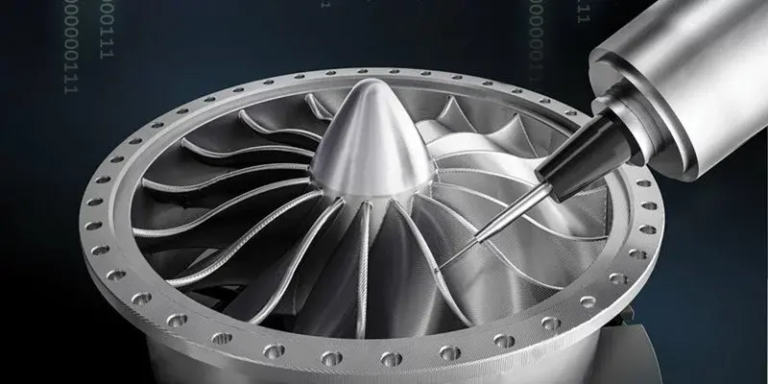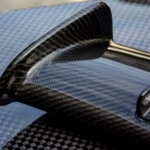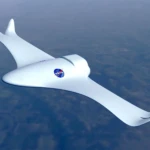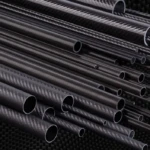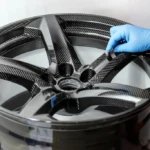Excellent Unlock: China Titanium CNC Machining – Where Accuracy and Quality Combination
titanium. The name can reminiscent of images of aerospace miracles, life-saving medical implants and cutting-edge engineering applications. Its special strength to weight ratio, excellent corrosion resistance, biocompatibility and ability to withstand extreme temperatures make it the material of choice for the most demanding tasks. But, this "Miracle Metal" A major challenge is presented: It is known that machining with the required precision and maintaining impeccable quality is difficult. Here, the integration of advanced manufacturing technology and deep expertise becomes crucial, which is the expert who truly shines through experts like Greatlight.
Titanium Challenge: Why Processing Needs the Best
The ideal characteristic of titanium is processing obstacles:
- Work hardening: Titanium hardens rapidly under cutting tools, accelerating tool wear and if technology is not optimized, it can damage surface integrity.
- Low thermal conductivity: The heat generated during processing will not dissipate quickly and will be concentrated on the cutting area. This can lead to thermal damage to parts (Alpha cases form) and catastrophic tool failures.
- High chemical reactivity: Titanium can react with cutting tool material under heat and pressure, further causing tool wear.
- elasticity: Titanium can "Spring is back" Or deflecting under cutting forces to keep it tight tolerant is challenging.
To overcome these challenges, success requires not only standard CNC machines. It requires a blend of sophisticated equipment, strict process control, a material science understanding and attention to detail.
Great Advantages: Five-axis accuracy as a game-changer
Solving the complexity of titanium processing requires technical advantages. At Greatlight, we use advanced Five-axis CNC machining As the cornerstone of our titanium manufacturing solutions. Why are there such a profound difference in five-axis CNC?
- Geometric Complexity Mastery: Five-axis machining allows cutting tools to approach the workpiece from almost any direction in a single setup. This is essential for complex aerospace components, complex medical devices or precise fluid dynamics parts, where complex contours, deep pockets and undercuts are essential. Making these functions with fewer shafts often requires multiple fixtures and settings, exponentially increasing the risk of tolerance for stack and alignment errors.
- Best tool paths and engagement: Five-axis machining is enabled by dynamically adjusting the orientation of the tool relative to the surface:
- Maintaining ideal cutting angles, significantly improving chip formation and evacuation – is crucial for heat management of titanium.
- Leveraging shorter, more rigid tools reduces vibration and deflection, which is essential for maintaining microscopic tolerances on elongated features.
- The finish is smoother thanks to consistent tool engagement.
- Improve efficiency: Complex parts can often be completed in a single setup, reducing lead time, reducing processing errors and reducing overall production costs.
- Excellent accessibility: Ability to make difficult-to-reach areas without complex fixation or special tool adaptation.
Beyond Machines: Greglight Consistent Titanium Mass Stand
Having capable equipment is just the starting point. Ensure the stability accuracy and quality of the hinge in an holistic manner:
- Strict process engineering: Each titanium alloy (class 5/TI6AL4V, CP grade, etc.) behaves slightly differently. Our engineers have carefully developed optimized tool paths, cutting speeds, feed speeds, and depths specially cut for grades and geometric shapes. This includes choosing the best tool materials (such as professional carbide grades or PCDs) and coatings.
- Advanced Tools and High Pressure Coolant: We adopt a high-performance tool system designed for titanium abrasives and utilize a high-pressure through tool coolant (HPTC) delivery system. This floods the cutting zone, effectively manages heat, improves chip evacuation and extends tool life.
- State-of-the-art machine capabilities: Our facilities feature modern high-end five-axis CNC machining centers, equipped with precision spindles, reliable thermal compensation systems, and advanced CNC controls capable of complex interpolation and real-time monitoring.
- Comprehensive quality assurance: Precision machining is verified at every stage. We utilize advanced metrology tools such as coordinate measuring machines (CMM), complex optical comparators and surface interface instruments. This ensures dimensional accuracy, geometric compliance and surface surfaces always meet or exceed the strictest specifications.
- Material expertise: Sourcing titanium from reputable mills and understanding its specific characteristics allows us to further fine-tune the process to maintain consistent results.
Strategic Value Proposition: Why do we need to cooperate like this with Chinese experts?
Choosing a titanium processing partner based in China, especially a partner focusing on high-precision five-axis functions, has compelling advantages:
- World-class infrastructure and supply chain: China has a mature, deeply integrated manufacturing ecosystem. This translates into effective material procurement, a large number of technical expertise and a strong logistics network.
- Technology mature: Leading manufacturers like Greatlime invest heavily in the latest generation of CNC machines and support technologies, putting them at the global forefront of precise machining capabilities.
- End-to-end solution expertise: In addition to core processing, we One-stop post-processing and completion service. Our internal functions are critical steps to handle titanium parts:
- Surface finish: Accurate grinding, polishing, burrs and special coatings for aerospace-compliant finishes.
- Heat treatment: Expertise on stress relief, annealing and solution handling to achieve the desired material properties.
- Anodizing: Provides a controlled oxide layer for color, wear resistance and adhesion.
- Laser marking: Permanent, high contrast part recognition.
- Cleaning and passivation: Ensures biocompatibility and enhances corrosion resistance for medical applications. This vertical integration simplifies production, greatly reduces lead times and ensures seamless quality control throughout the process.
- Material flexibility: Our expertise goes beyond titanium to a variety of metals (aluminum, steel, stainless steel, Inconel®, etc.) and engineering plastics, making us a multifunctional partner for a variety of substance projects.
- Agile scalability: We effectively meet the need for rapid prototype development, requiring rapid turnaround for design verification and mass production while maintaining quality consistency.
Conclusion: Precision Titanium Processing – Your competitive advantage, delivery
Making the highest standards of precision and quality of titanium is an undeniable challenge, but it is a challenge that is thoroughly accepted and mastered in professional CNC machining centers in China like Greatlight. By leveraging the unrivalled geometric freedom and capability of advanced five-axis CNC machining, supported by rigorous process engineering, meticulous quality control and comprehensive internal finishing services, we turn the complexity of titanium into an opportunity for innovation.
Whether you are at the limits of aerospace, developing critical medical devices, enhancing high-performance automotive systems, or creating innovative industrial applications, the consistent quality of titanium parts is uninvestigated. Greatlight Anding is ready to be your strategic partner, combining deep technical expertise with a commitment to exceeding expectations. We solve complex metal parts manufacturing problems efficiently, reliably and cost-effectively.
Ready to transform titanium vision into precise reality? Don’t compromise on quality or ability. Contact Greatlight today for consultation and experience how our five-axis CNC machining expertise can enhance your next project. Request your custom precision parts quote now!
FAQ: China Titanium CNC Processing
Q1: Why is titanium so difficult and expensive?
A1: The special strength and low thermal conductivity of titanium are the key culprits. Materials work quickly and quickly and dull tools. The heat generated during the cutting process accumulates (poor thermal conductivity), which damages the tool and potential part surfaces. This requires specialized (and expensive) tools, slower cutting speeds, powerful machines and advanced coolant strategies, all with increased cost and cycle time compared to metals such as aluminum.
Q2: What accuracy tolerance can be achieved using titanium CNC machining?
A2: With advanced five-axis CNC machines and meticulous process control, manufacturers like Greatlight can always achieve extremely tight tolerances. Specific features depend on part size and feature complexity, but tolerances reach ±0.002 inches (±0.05 mm) Or closer critical dimensions are standard in precision stores. Featured applications may have micro-level tolerances.
Q3: What information do I need to provide to provide a custom titanium part quote?
A3: To get an accurate competitive offer, it is crucial to provide the following:
- Detailed 3D CAD models (e.g., steps, IGES, SLDPRT)
- 2D drawings with critical dimensions, tolerances and surface effect requirements
- Titanium Material Specification (e.g., Ti6al4v, CP Level 2)
- Quantity required
- Required surface treatment/surface treatment (e.g. anodizing, polishing)
- Target timetable
The more detailed the information, the faster and more accurate the quote and process will be.
Question 4: What are the main benefits of using five-axis CNCs specifically for titanium?
A4: Processing five axes through:
- Complex geometric shapes: Machining complex shapes and contours with 3 axes.
- Reduce settings: Completely set up fewer parts, improve accuracy and save time/cost.
- Best tool performance: Maintaining the ideal cutting angle minimizes force, heat and tool wear.
- Shorter tools: Use more rigid tools to reduce deflection for better control of tolerance.
- Top surface finish: Smoother with continuous optimal toolpaths.
Question 5: How does Greatmight ensure quality control of mission-critical titanium parts?
A5: The quality is embedded in each stage:
- Process Verification: Strict processing parameters for each titanium alloy and geometry are developed.
- Process Check: Dimensional verification ongoing during processing.
- Advanced Metrics: The final inspection uses CMM, optical comparator and surface tester for print and GD&T standards.
- Material traceability: Verification of titanium material certificate.
- document: Provide a comprehensive inspection report (fair/PPAP as needed). Certifications such as ISO 9001 ensure the integrity of the system.
Question 6: Can I process other materials besides titanium?
A6: Absolute. Although specializing in titanium, Greatlight has extensive expertise in processing a variety of materials including aluminum alloys (2000, 6000, 7000 series), stainless steel (303, 304, 316, 17-4ph), tool steel, Inconel® and other super alloys, copper, copper, copper, peck, peck, Delrin®, and finally, and more. We are your one-stop solution for your multiple metal and plastic CNC processing needs.
Question 7: Choose a manufacturer based on China to compromise on quality?
A7: No, when working with a well-known expert like Greatlight, it is not. Today, the well-known Chinese manufacturer operates world-class facilities with the latest CNC technology enforced under strict quality management systems such as ISO 9001. Our focus is not just to compete on price, but to provide unparalleled precision and quality through technical capabilities and expertise, especially for challenging materials such as titanium (such as titanium). Our investment in five-axis CNC technology and the integrated quality process make us firm or leading with global standards.
Question 8: Which type of parts is best for titanium CNC machining?
A8: Titanium is ideal for key application requirements:
- Lightweight power: Aerospace frame, engine components, drone parts.
- Biocompatibility: Orthopedic implants, surgical instruments, dental components.
- Corrosion resistance: Marine hardware, chemical processing equipment parts.
- High temperature performance: Jet engine components, racing exhaust system.
- Fatigue resistance: Key load-bearing structure, high-performance sports goods.
Complex prototype and end-use components benefit significantly from five-axis precision machining.
